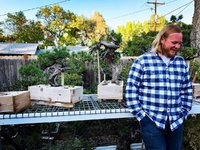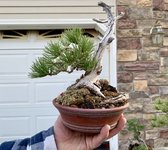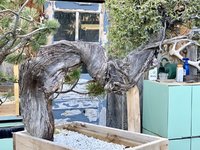Honestly, I feel as if we all know the answer as to "-Bonsai as a Financial Investment."

But, in any case, we might get to hear some interesting thoughts on that.
Also echoing what Kanorin said, technical stuff is really great content imho, though hard to do over voice. One of my favorite podcast episodes is the interview Ryan Neil did with Dennis Vojtilla.
Random questions I came up with:
- Oldest bonsai tree you've seen in person/worked on in person. (though age doesn't dictate quality);
- Favorite species and why;
- Any random species they do that general people don't use in bonsai? (e.g., Grape);
- Anything they do with respect to bonsai that others don't do?, e.g., use HB-101;
- First tree they killed and how;
- Describe the best tree they've found at a non-bonsai nursery, if any
PS: I started listening in on the podcast this last weekend. Think you're doing a fantastic job. Big thumbs up!
Really small side note: A good mic would really help the production quality.. Though I'm sort of a podcast snob and listen to many different ones. You'd be surprised what a cheap $25 Amazon mic could produce.. PM me if you're interested and I'll find and send you a link.








